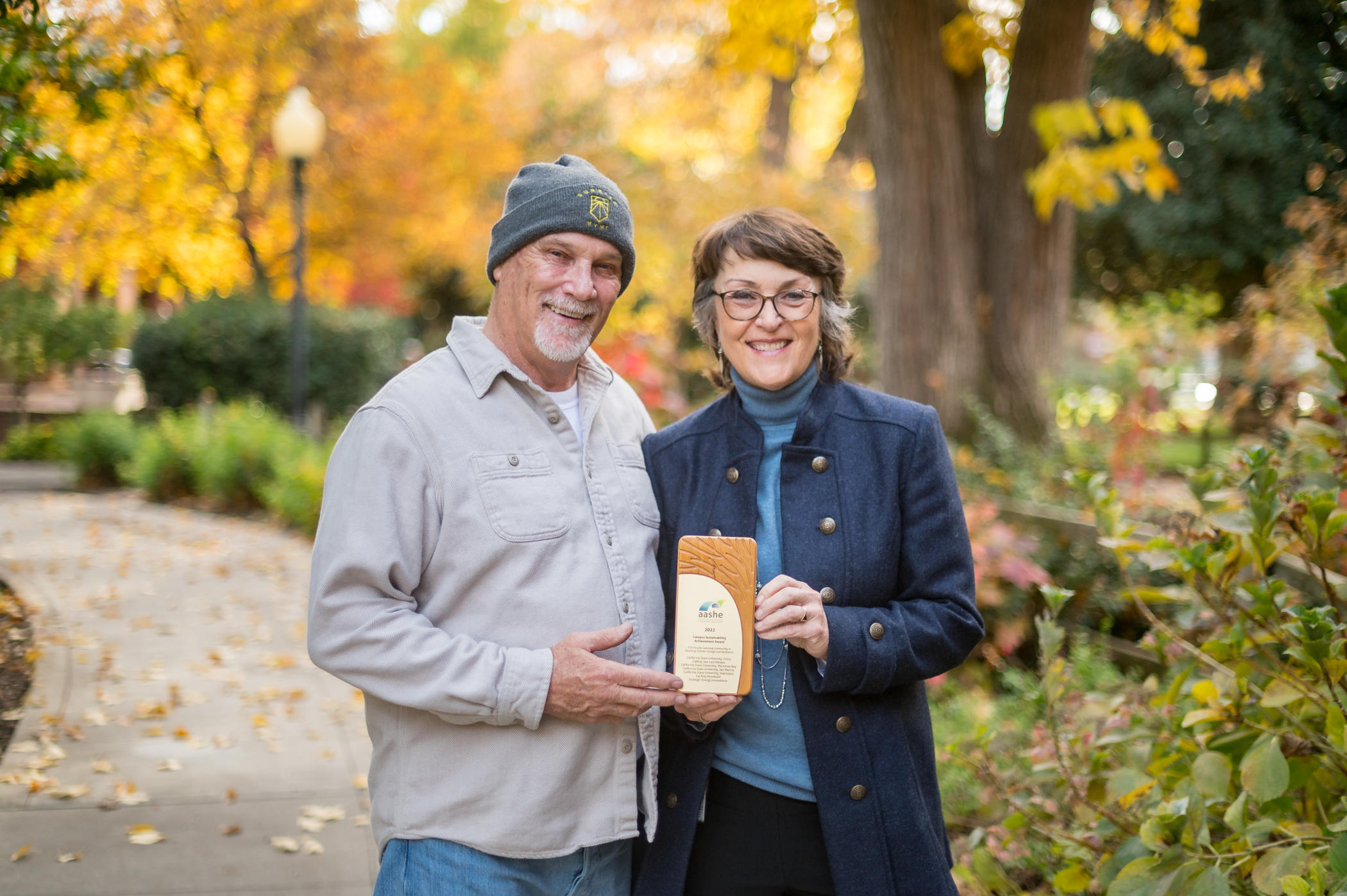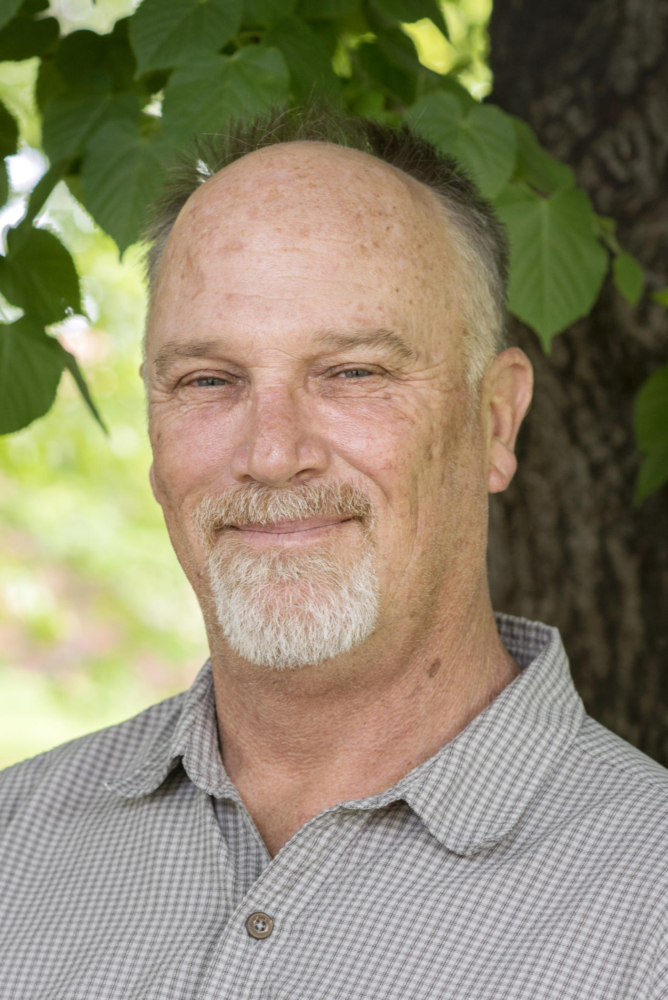Chico State Professor Helps Reshape How CSUs Teach About Climate Change

Faculty Learning Community in Teaching Climate Change and Resilience led by University earns esteemed global sustainability award
Professor Mark Stemen wants climate change integrated across every aspect of the curriculum.
Today, with his influence, that dream is one step closer. After leading the first multi-campus faculty learning community in the history of the California State University system, Stemen is helping usher in a new way of teaching about the subject—and experts are taking notice.
In spring 2022, Stemen facilitated the inaugural Faculty Learning Community in Teaching Climate Change and Resilience. With participation from 62 faculty from six CSU campuses representing over 30 disciplines, the FLC ultimately redesigned 75 classes to offer greater engagement in climate change.

“Students are asking questions about this topic in not just their science classes, but all of their classes,” Stemen said. “They’re asking about it in their philosophy classes. They’re asking about it in their history classes. They’re asking about it in their political science classes.
“The questions are coming up, and for the most part, faculty were not trained to teach this. So, faculty needed to have a place to get up to speed on what is happening with climate change and then think about how they could integrate into whatever subject matter they were teaching.”
On December 8, the Association for the Advancement of Sustainability in Higher Education (AASHE) gave the effort global recognition by awarding Chico State the coveted Campus Sustainability Achievement Award. The 12 recipients for AASHE’s 2022 Sustainability Awards were selected from more than 430 submissions and recognize high-impact sustainability projects, pioneering research, and student leadership.
Long known as a fierce environmental advocate, Stemen says he is both honored and humbled by the award, as it places Chico State on a prominent stage while affirming how impactful the FLC was in addressing climate change amid a broad swathe of students.
The goal with the FLC was to help faculty integrate climate change topics into their courses to support the University’s Strategic Priority for Resilient and Sustainable Systems, better prepare students for emerging jobs, and address a topic at the top of students’ minds.
Logan Smith, an assistant professor in the College of Agriculture, polls students on the first day of class every semester to ask what they think is the greatest challenge in agriculture. The No. 1 response: climate change.
Through their answer, his students are telling him what they want to focus on, he said. Allowing students to discuss climate change has made students feel empowered and heard, and they are showing more engagement in class.
The FLC, which is a peer-led group, helped faculty integrate climate change and resilience into their curriculum, provided them with tools and resources, created a community for collaboration, and supported the work of campus sustainability coordinators across the CSUs.
Stemen, who teaches geography and planning and serves on the city of Chico’s Climate Action Commission, has years of experience organizing, hosting, and participating in sustainability workshops and events. In his 23 years at Chico State, he has hosted over a dozen faculty development workshops on integrating sustainability into the college curriculum.
For the FLC, he helped coordinate 20 speakers from industry and academia who connected faculty with a broad range of approaches and ideas, as well as gathered resources and facilitated conversations that delved into topics from science and solutions to climate justice.
Besides the learning that took place for both faculty and students, Stemen noticed the FLC was exposed to solutions to climate change, which when presented to students helped ease their anxiety.
“Climate anxiety in our students is real,” he said. “And our teaching about it is maybe making it worse. I think the biggest thing that we need to fight against is this idea of narrative foreclosure—the story’s over. That’s just not true and it’s not what our students need to hear. They need to know that they’re going to have lives and there’s a future for them.”
Smith noted that one change he learned from the FLC was addressing the “common trope describing humans as destructive forces.” Using solutions brought up during the FLC helped students identify ways they can contribute, add to the discussion, and develop ideas. Smith also introduced students to Chico State’s Center for Regenerative Agriculture and Resilient Systems.
As a result of the FLC, civil engineering professor Pablo Cornejo transformed his traditional economics engineering class into an engineering sustainability and economic analysis course. The class incorporated concepts surrounding climate change, resilience, and carbon footprints, as well as emphasizing social, environmental, and economic sustainability and decision-making.
The retooled course better prepares students to tackle the realities of climate change, he said. Students are excited to come up with innovative solutions to solve the climate crisis.
Natalie Pangilinan (Environmental Sciences, ’22), who was the teaching assistant for the FLC, has often experienced climate anxiety and guilt, but she said learning about solutions faculty were discussing in their classrooms was “hopeful.”
Pangilinan commends the University for being a leader on this critical issue and expanding climate literacy for all students.
“Climate change isn’t going anywhere, and it affects every student no matter what major they end up choosing,” she said. “And every course can involve climate topics. The sooner we start realizing that the better.”
The thinking of Project Drawdown (one of the organizations the FLC heard from) is that “coming into the future, every job is going to be a climate job,” Stemen said. “Since we’re training the next generation, then isn’t every class—in some way—a climate class?”
While the FLC was completed in the spring, there has been interest from at least 10 additional universities and about 60 more faculty members, so the hope is to replicate it in spring 2024.


